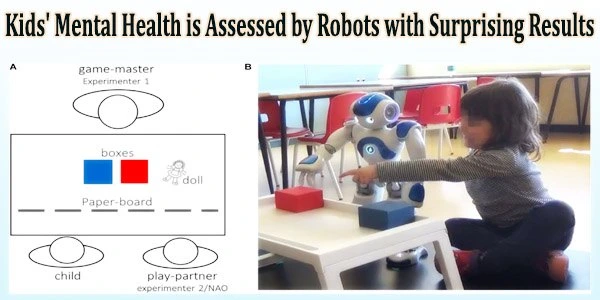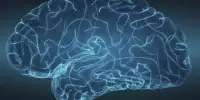Children’s anxiety and depression are major global mental health concerns. According to a recent study, humanoid robots are more effective at identifying children mental health problems than parent- or child-reported tests.
The study was conducted by psychiatrists, roboticists, and computer scientists from University of Cambridge, and was recently presented in Naples, Italy at the 31st IEEE International Conference on Robot & Human Interactive Communication.
“In this work, we conducted an empirical study to investigate the use of robots in the evaluation of children’s mental wellbeing as compared with the established standardized modes of psychometric test administration,” wrote the study lead Hatice Gunes, a Professor of Affective Intelligence and Robotics at University of Cambridge’s Department of Computer Science and Technology, along with her research colleagues.
According to a report published in JAMA Pediatrics, the prevalence of anxiety and depressive symptoms among children during COVID-19 has doubled compared to pre-pandemic projections globally.
Prior to the global COVID-19 pandemic, pediatric anxiety and depression was on the rise. For example, in the U.S. during 2016-2020, anxiety in children rose 29 percent and depression increased by 27 percent according to the National Survey of Children’s Health.
Our results show that the robotized evaluation seems to be the most suitable mode in identifying wellbeing related anomalies in children across the three clusters of participants as compared with the self-report and the parent-report modes.
“Even before the pandemic era, anxiety and depression had increased among children in the UK, resulting in a growing rate of suicide numbers,” wrote the UK-based researchers. “This increase in the number of children with wellbeing related concerns has turned into a real call for action by the healthcare and psychological support fields due to the limited resources and struggle in understanding and addressing children’s needs.”
The researchers wanted to know how well a humanoid robot can assess children’s mental health problems. The Nao humanoid robotic platform by SoftBank Robotics was used for this study. The fully programmable Nao robot is a bipedal robot that stands just under two feet tall that was first introduced in 2006 to create an empathetic link to humans.
Nao is equipped with seven touch sensors, four speaker/microphones, two 2D cameras, as well as speech recognition and dialogue capabilities in twenty languages.
The child-sized robot followed a pre-written script during the study while engaging the children interactively. It asked the children to do tasks inspired by standardized test in the area of pediatric cognitive psychology.
Specifically, the robot administered a draw a picture task inspired by the Children’s Apperception Test, managed two questionnaires (Short Mood and Feelings, Revised Child Anxiety and Depression), and asked open-ended questions about their recent happy and negative memories.
Before a 45-minute 1:1 session with the robot, the 28 study participants between the ages of eight and 13 years old within Cambridgeshire in the United Kingdom and their parent or guardian filled out standard mental health assessments questionnaires.
“Our results show that the robotized evaluation seems to be the most suitable mode in identifying wellbeing related anomalies in children across the three clusters of participants as compared with the self-report and the parent-report modes,” the researchers reported.
The humanoid robot performed better than the parent-report and self-report methods in the study and could be a useful tool to assess children’s mental health, but it is not meant to take the place of pediatric clinicians in the diagnosis and treatment of anxiety and depression, according to the researchers.
















